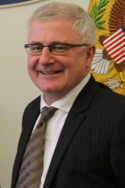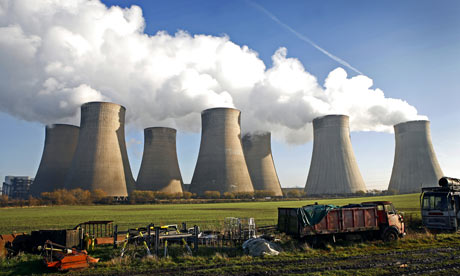 Something I didn’t expect: Peter Gleick, the director of the Pacific Institute, a vocal opponent of climate denial and a highly respected scientist, turns out to have been behind the leak of the Heartland Institute board meeting documents that have been creating waves for the last week. Gleick made the admission in an article at Huffington Post earlier today (NZ). He reports that he received:
Something I didn’t expect: Peter Gleick, the director of the Pacific Institute, a vocal opponent of climate denial and a highly respected scientist, turns out to have been behind the leak of the Heartland Institute board meeting documents that have been creating waves for the last week. Gleick made the admission in an article at Huffington Post earlier today (NZ). He reports that he received:
…an anonymous document in the mail describing what appeared to be details of the Heartland Institute’s climate program strategy. It contained information about their funders and the Institute’s apparent efforts to muddy public understanding about climate science and policy. I do not know the source of that original document but assumed it was sent to me because of my past exchanges with Heartland and because I was named in it.
In order to attempt to verify that document’s contents, he:
…solicited and received additional materials directly from the Heartland Institute under someone else’s name. The materials the Heartland Institute sent to me confirmed many of the facts in the original document, including especially their 2012 fundraising strategy and budget.
Gleick goes on to apologise for what he calls “a serious lapse of my own and professional judgment and ethics”.
As you might expect, the usual suspects are all over Gleick’s admission like a rash, but it’s important to retain some perspective here. The people so ready to decry Gleick’s actions were notably silent about the theft and release of private emails from the Climatic Research Unit at the University of East Anglia. The Heartland Institute was central to promoting discussion of those emails, and continues to paint their contents as a scandal. Their hypocrisy, and that of Watts, McIntyre and the rest of the Heartland fellow travellers, is breathtaking.
Nevertheless, Gleick should not have done what he did. However valuable the public service he performed in exposing the reality of Heartland’s climate lobbying and the roots of its funding — and that information is hugely important to any “rational discussion” of why, more than 20 years after the problem was first identified, the USA and the world remains unable to take meaningful action on emissions reductions — the means he chose were not those we would expect from a respected senior scientist.
However this plays out in the longer term, it’s clear that Peter Gleick played the role of whistleblower, bringing the attention of the world to the nefarious activities of a well-funded right wing lobby group with mysterious “anonymous donors” and zero accountability for their actions. It’s a job that any worthwhile investigative journalist would have loved to have done — and which should have been done long ago.
Together with the sterling efforts of John Mashey, the leaked documents confirm in detail what many had suspected. Heartland have made a career out of subverting the truth, the law, and the democratic process.
Gleick might pay a heavy price for his indiscretion, however laudable his goals. Heartland, its funders and the pet “scientists” on their payroll must be made to pay the higher price. Their actions have condemned future generations to far worse than any lapse of judgement or ethics. The real price of Heartland’s policies will be paid in human suffering, and for that there will be no forgiveness.
See also; The Guardian, George Monbiot on why We need to know who funds these tinktank lobbyists, Union of Concerned Scientists report on How Corporations Corrupt Science at the Public’s Expense, Josh Rosenau on parallels between Heartland’s climate “education” tactics and that of creationists, plus Peter Sinclair on Heartland’s abject pleading for tobacco money as recently as 1999 — and let’s not forget they arer still getting it today, and are happy to have a “smoker’s lounge” on their web site.
Continue reading “(Not So Simple) Twist Of Fate”
Like this:
Like Loading...

 Climate Change Minister Tim Groser gave a substantial and intelligently argued
Climate Change Minister Tim Groser gave a substantial and intelligently argued  Something I didn’t expect:
Something I didn’t expect:  George Monbiot has a
George Monbiot has a  The defence of the Ratcliffe coal power plant protesters in the UK, charged with conspiracy to commit aggravated trespass, was that they were acting through “necessity” to prevent death and serious injury caused by carbon dioxide emissions and climate change. James Hansen was among the defence witnesses, testifying to the reality of the danger from climate change. The prosecution argued that the defendants were not really intending to stop carbon emissions, but instead engaged in a publicity stunt. I wrote in
The defence of the Ratcliffe coal power plant protesters in the UK, charged with conspiracy to commit aggravated trespass, was that they were acting through “necessity” to prevent death and serious injury caused by carbon dioxide emissions and climate change. James Hansen was among the defence witnesses, testifying to the reality of the danger from climate change. The prosecution argued that the defendants were not really intending to stop carbon emissions, but instead engaged in a publicity stunt. I wrote in